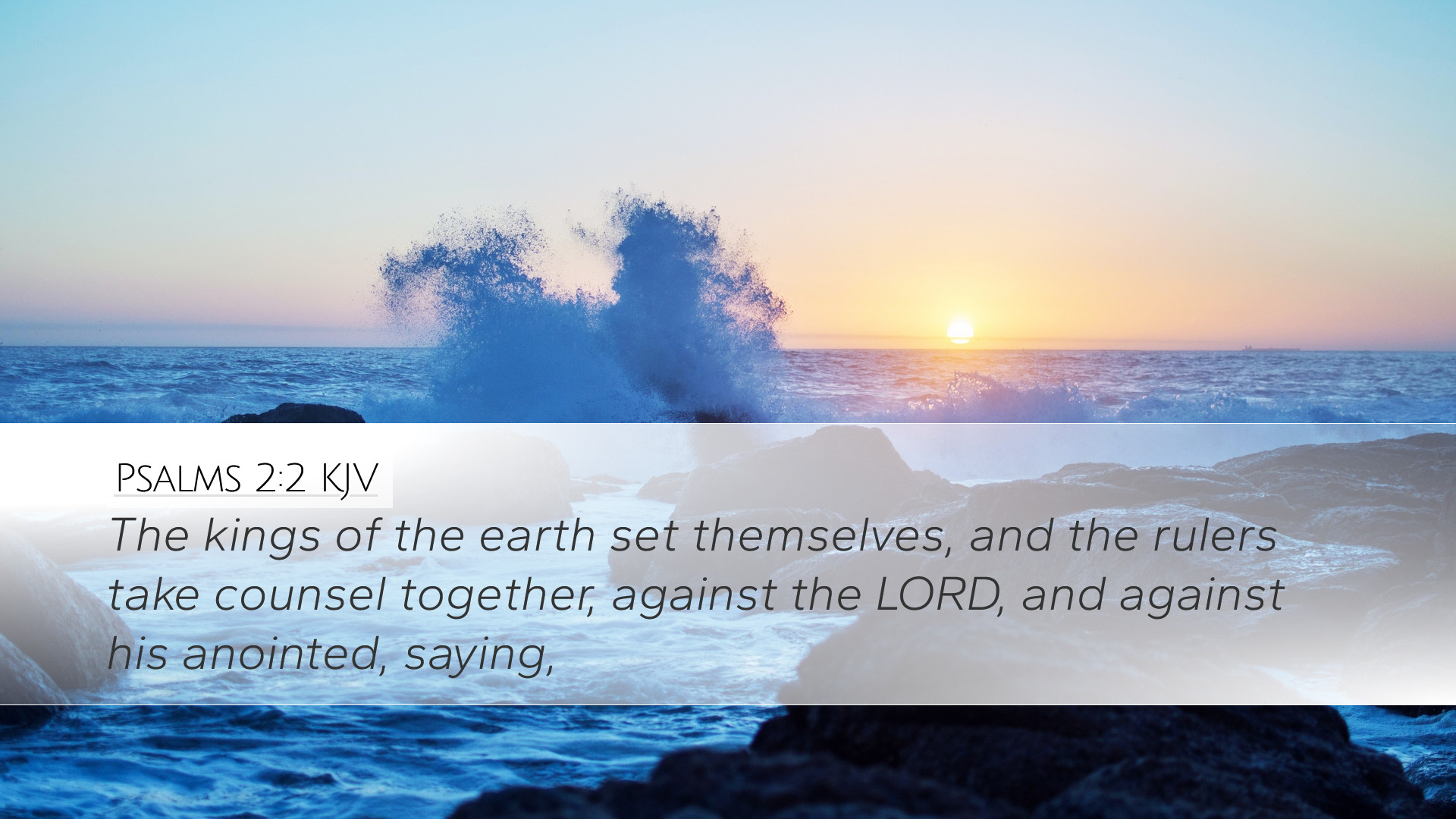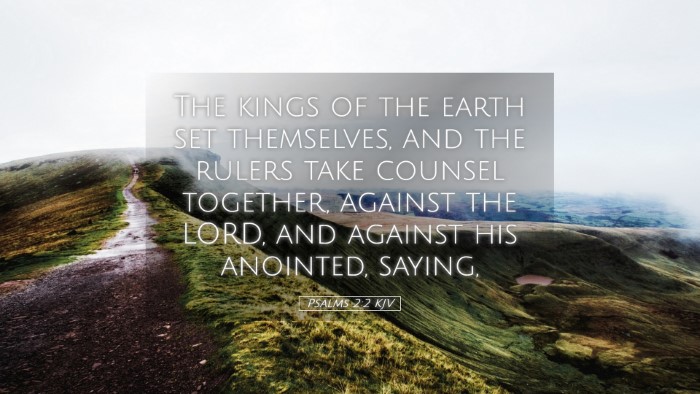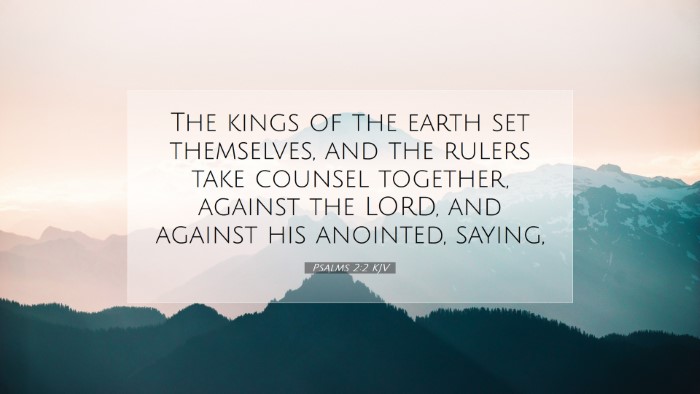Psalms 2:2 Commentary
The second verse of Psalm 2 holds significant theological and practical implications for understanding the nature of divine authority and the futility of opposing God's design. Let us explore insights from various public domain commentaries to elucidate this profound scripture.
Verse Context and Meaning
Psalms 2:2 (KJV): "The kings of the earth set themselves, and the rulers take counsel together, against the Lord, and against his anointed, saying,"
This verse immediately presents the reader with a picture of rebellion amongst the leaders of nations. The “kings of the earth” signifies earthly authority, representing those who hold power in the human realm while “his anointed” refers to the Messiah, pointing toward both the historical and prophetic significance of God's chosen one.
Insights from Commentaries
Matthew Henry
Henry elaborates on the rebellious nature of earthly rulers when they conspire against God’s anointed. He highlights that the term ‘set themselves’ indicates a deliberate positioning of their will against divine authority. The sages of the world may plot, but their efforts are fundamentally misguided as they fail to acknowledge the sovereignty of God over all creation.
- Divine Authority: Their conspiring reveals a deep-seated rebellion against both God and His appointed leader. This opposition is not just political; it is spiritual, defying God’s inherent justice.
- Futility of Rebellion: Henry reminds us that no matter the extent of their alliances or their plotting, they ultimately march against an omnipotent force, thus their efforts are fruitless.
Albert Barnes
Barnes notes that the phrase “the rulers take counsel together” emphasizes the unity of opposition among leaders. It illustrates a collective effort that suggests despair and desperation among those who are enraged by God’s governance through His anointed.
- Collusion Against God: Barnes emphasizes that their counsel is directed explicitly against God’s plans, showcasing that there will always be antagonism towards divine rule.
- Historical Context: He also points to the historical context, referring to instances in which earthly kings have directly opposed God’s decrees, illustrating this ongoing struggle throughout biblical history.
Adam Clarke
Clarke provides a critical observation about the term ‘anointed,’ linking it powerfully to the office of the Messiah. He indicates that this rebellion against the anointed is not merely a historical endeavor but a continuous reality faced by prophets and messengers throughout time.
- The Role of the Anointed One: Clarke’s commentary accentuates the significance of recognizing Jesus Christ as the ultimate fulfillment of ‘his anointed,’ hinting at the New Testament applications of this verse.
- Reconciliation and Challenge: He encourages readers to reflect on how this aligns with the struggle for faith and recognition of the true sovereignty of God over all spheres of life.
Theological Reflections
Psalms 2:2 presents a profound theological reflection on the human condition and the state of the world in its opposition to God. A few crucial theological insights to consider are:
- Authority and Subordination: The text underscores the hierarchy of authority where God holds supreme authority over all earthly rulers, compelling theologians to reconcile earthly leadership with submission to divine rule.
- Rebellion as a Theme: The consistent theme of rebellion against God runs throughout scripture, reminding believers of the necessary vigilance against cultural and political forces that challenge God's commands.
- Prophetic Insight: Prophetic literature often reflects on God’s sovereignty, and this psalm serves as a reminder of the ultimate victory of God's plan despite present tumult.
Practical Applications
For pastors, students, theologians, and scholars, this psalm encourages a re-evaluation of how we view authority and our posture towards states of rebellion:
- Encouragement to Stand Firm: In the face of opposition and resistance to God’s ways, believers are encouraged to stand firm in their faith and trust in God's ultimate authority.
- Importance of Prayer and Council: The corporate prayer and counsel against godlessness among people of faith is crucial. Counteracting the counsel of earthly rulers reinforces unity in faith.
- Understanding Divine Sovereignty: As scholars and theologians study the implications of divine reign in relationship to human leadership, this text serves as a robust reminder of the futility of opposition to God’s will.
Conclusion
Psalms 2:2 encapsulates the age-old conflict between divine sovereignty and human rebellion, calling readers to recognize the limits of earthly power in the light of God’s ultimate authority. As we reflect on this scripture with insights drawn from notable commentaries, we are reminded of our roles as advocates of God’s kingdom, emboldened by His promises and rooted in the assurance of His reigning presence.


